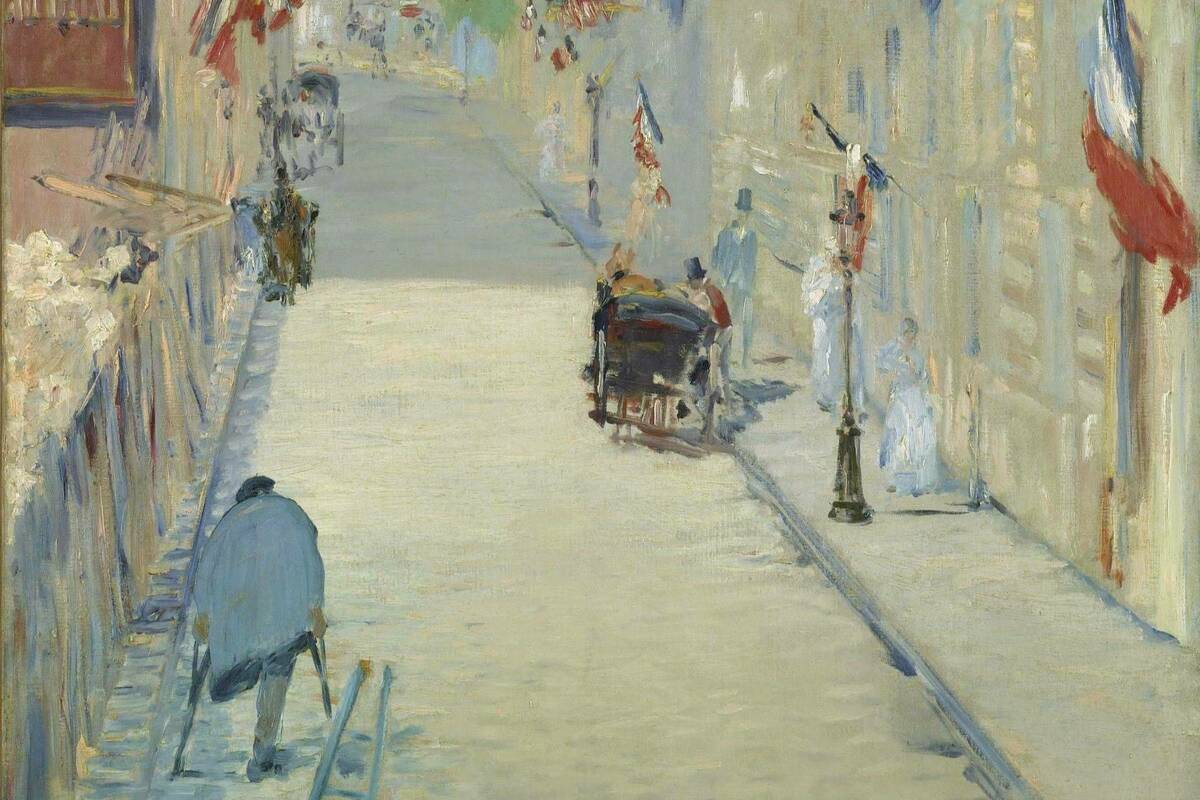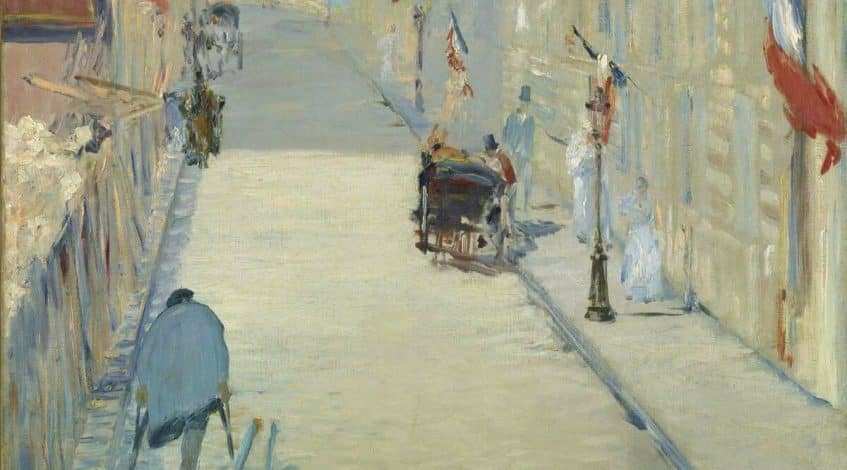
There are places where the Spirit breathes; but there is one Spirit who breathes in all places. There are some people whom God takes and sets apart.
There are others whom he leaves in the masses and whom he does not “withdraw from the world.” These are people who do ordinary jobs, who have an ordinary household, or are ordinary celibates. People who have ordinary illnesses, ordinary deaths. People who have an ordinary house, ordinary clothes, these are the people of ordinary life. The people we meet on any street.
They love their door that opens onto the street, just as their brothers, who are hidden from the world, love the door that has definitively closed on them.
We, the ordinary people of the streets, believe with all our might that this street, that this world where God has placed us, is, for us, the site of our holiness.
We believe that we lack nothing necessary, because if any necessity were missing, God would have already given it to us.
Silence
We are not lacking silence. We already have it.
If we lack silence, it is because we have not learned how to keep it. All the noises that surround us make much less din than we do. The real noise is the echo that things have in us. It is not speaking that necessarily breaks the silence.
Silence is the place of the word of God, and if we confine ourselves to repeating this word, then we can speak without ceasing to be silent.
Monasteries arise as the places of praise and the places of the silence necessary for praise. In the street, pressed in the crowd, we establish our souls as many hollows of silence where the word of God can rest and resound. In those crowds where hatred, greed, drunkenness reveal the presence of sin, we find this silence, the silence of the desert, and our heart falls into meditation with great ease, so that God can ring out his name: Vox clamans in deserto, “the voice of one crying in the wilderness” (Mt 3:3, Lk 3:4, and Jn 1:23, citing Is 40:3).
Solitude
To us, the people of the streets, it seems that solitude is not the absence of the world but the presence of God.
To encounter him everywhere is what makes our solitude.
To be truly alone is, for us, to participate in the solitude of God. He is so great that he leaves no room for anyone else unless in him. The whole world is like a vast face-to-face meeting with God from whom we cannot escape. An encounter with his living causality in these street corners bustling with movement.
An encounter with his imprint on the earth.
An encounter with his providence in the laws of science.
An encounter with Christ in all these “little ones who belong to him,” those who suffer in their bodies, those who are bored, those who worry, those who are in need.
An encounter with Christ rejected, in the sin of a thousand faces. How could we have the heart to mock them or to hate these many sinners with whom we rub shoulders?
The solitude of God in fraternal charity: Christ serving Christ. Christ in the one who serves, Christ in the one who is served.
How could discipleship be a waste of energy or a distraction for us?
Obedience
We, the ordinary people of the streets, know well that as long as our will is still alive, we cannot love for the good of Christ.
We know that only obedience can establish us in this death.
We will envy our religious brothers if we cannot also die a little more at every moment as they do.
The minor circumstances (of obedience) are our true “superiors.” They do not leave us alone for an instant, and the “yeses” we must give them follow one right after the other.
When we surrender ourselves to them without resistance, we are wonderfully freed from ourselves. We float in Providence like a cork in water.
And let’s not put on airs; God does not leave anything to chance; the pulsations of our lives are immense because he has willed them all.
From the moment we wake up, situations that call for our obedience seize us. They are the ringing of the telephone, the key that does not work, and the bus that does not come, that is full, or that does not wait for us. They are our neighbor on the bench who takes up all the room or the window that vibrates enough to split your head.
Situations of obedience are the day’s gears, one thing leading to another, the kind of work we would not have chosen.
They are time and its variations, exquisite because they are absolutely pure of all human will. They are being cold or being hot. They are the migraine and the toothache. They are the people we meet, the conversations that our interlocutors choose. They are the rude gentleman who bumps into us on the sidewalk. They are the people who want to waste our time and detain us.
Obedience for us, the ordinary people of the streets, is to yield yet again to the quirky demands of our time as long as they are harmless. It is to wear the same clothes as everyone else, keep the customs of everyone else, speak the language of everyone else. It is, when we live together, to forget to have preferences and to leave things where others put them.
Thus life becomes a great film in slow motion. It does not give us vertigo. It does not leave us out of breath. It eats away little by little, fiber by fiber, at the old man’s clothes, which are not salvageable and need to be totally replaced.
If we are accustomed to thus surrendering our will to the little things, we no longer find it difficult, when the occasion presents itself, to do the will of our department head, our husband, our parents.
And we certainly hope that even death will be easy; it won’t be a big deal, but a series of small, ordinary sufferings, consented to one after the other.
Love
We, the ordinary people of the streets, are very sure that we can love God as much as he wants to be loved by us.
We believe love is not extravagant but something that consumes, and we believe that doing every small deed with God and like God is a better way to love him than performing great deeds.
Moreover, we are often quite wrong about the greatness of our deeds. We only know two things: first, everything we do is little; second, everything that God does is very great.
This makes us peaceful before action.
We know that our whole job consists in not gesticulating under grace, in not choosing things to do, and that it is God who will act for us.
Nothing is difficult for God, and whoever is afraid of difficulty will believe that he is capable of acting on his own.
Because we find in love a sufficient occupation, we have not taken the time to classify acts into prayer and actions.
We find that prayer is an action and that action is a prayer.
It seems to us that a truly loving action is full of light.
It seems to us that, before it, the soul is like a night that is very attentive to the light that is going to come. And when the light is there, the will of God clearly understood, the soul lives it ever so gently, calmly watching her God come alive and act in her.
It seems to us that action is also an imploring prayer.
It does not seem to us that action pins us down to our field of work, apostolate, or life.
Quite the contrary, it seems to us that action, perfectly accomplished where it is asked of us, grafts us onto the whole Church, diffuses us throughout her body, makes us available in her.
Our feet walk in the street, but our hearts beat throughout the whole world.
That is why our small acts, in which we do not know how to distinguish between action and prayer, so perfectly unite love of God and love of our brothers.
Delivering ourselves to his will delivers us simultaneously to the Church, which constantly makes herself life-saving and the mother of Grace.
Every docile act makes us fully receive God and fully give God in a great freedom of spirit.
Therefore, life is a great celebration.
Every small action is an immense event in which Paradise is given to us, in which we can give Paradise.
Whatever we have to do: take up a broom or a pen; speak or keep quiet; do the mending or give a lecture; tend to a sick person or type on a machine.
All of this is but the exterior of the splendid reality of the encounter of the soul with God, every minute renewed, every minute enhanced in grace, ever more beautiful for her God.
There is someone at the door—quick, let us open it. It is God who comes to love us.
A request? Here it is: it is God who comes to love us.
It is time to sit down at the table: let’s go; it is God who comes to love us.
Let’s let him.
EDITORIAL NOTE: This piece is an excerpt from The Holiness of Ordinary People, courtesy of Ignatius Press, All Rights Reserved.

